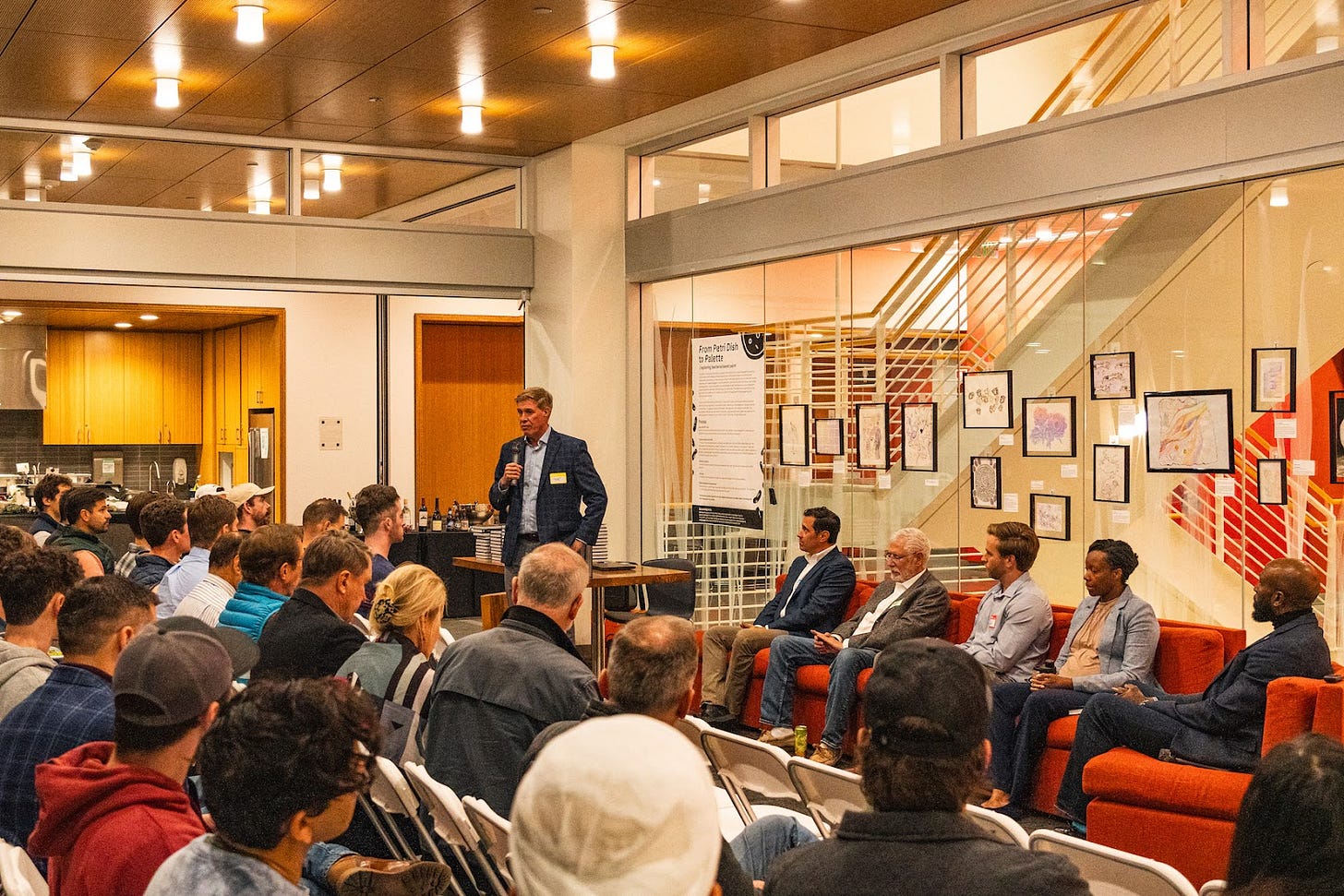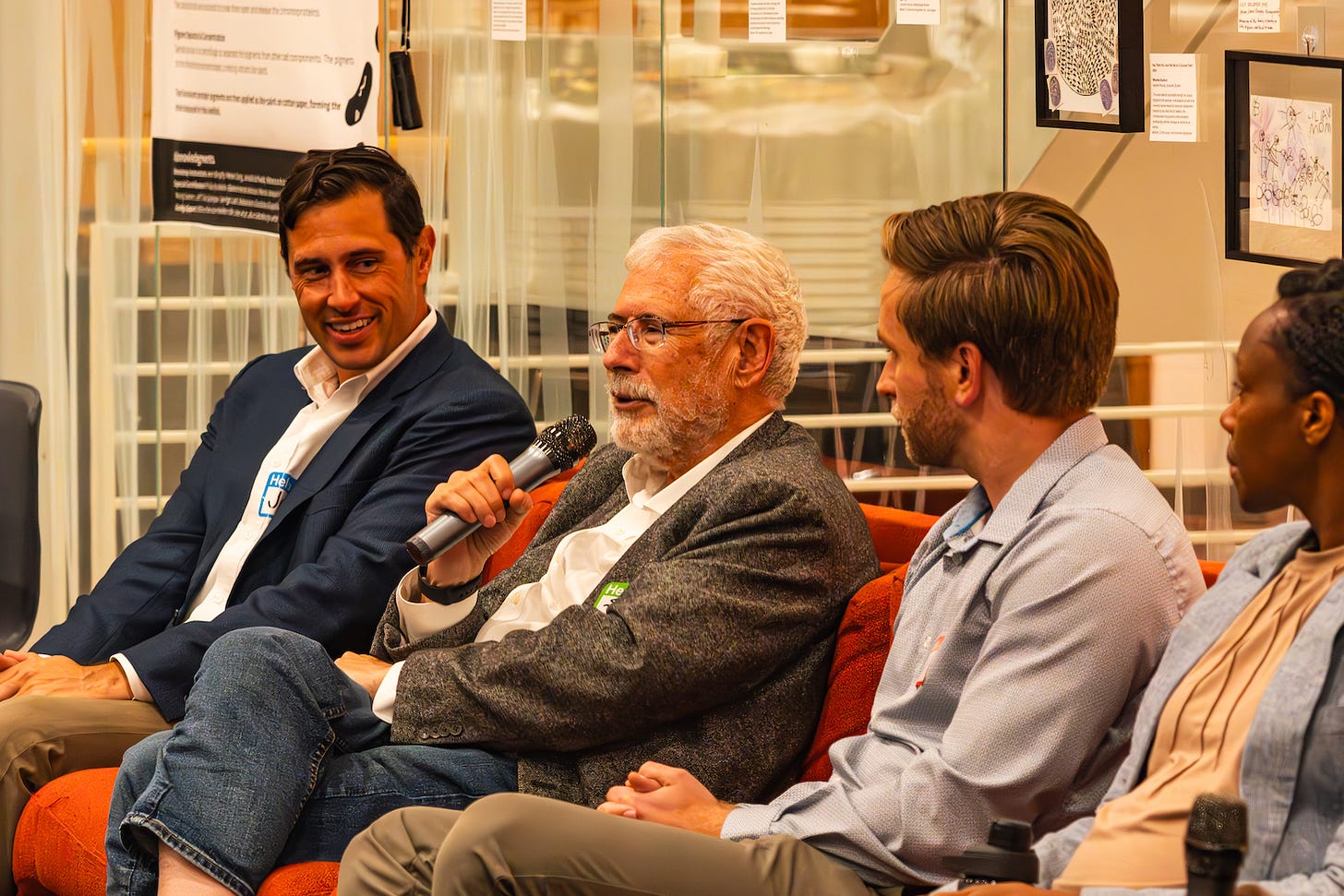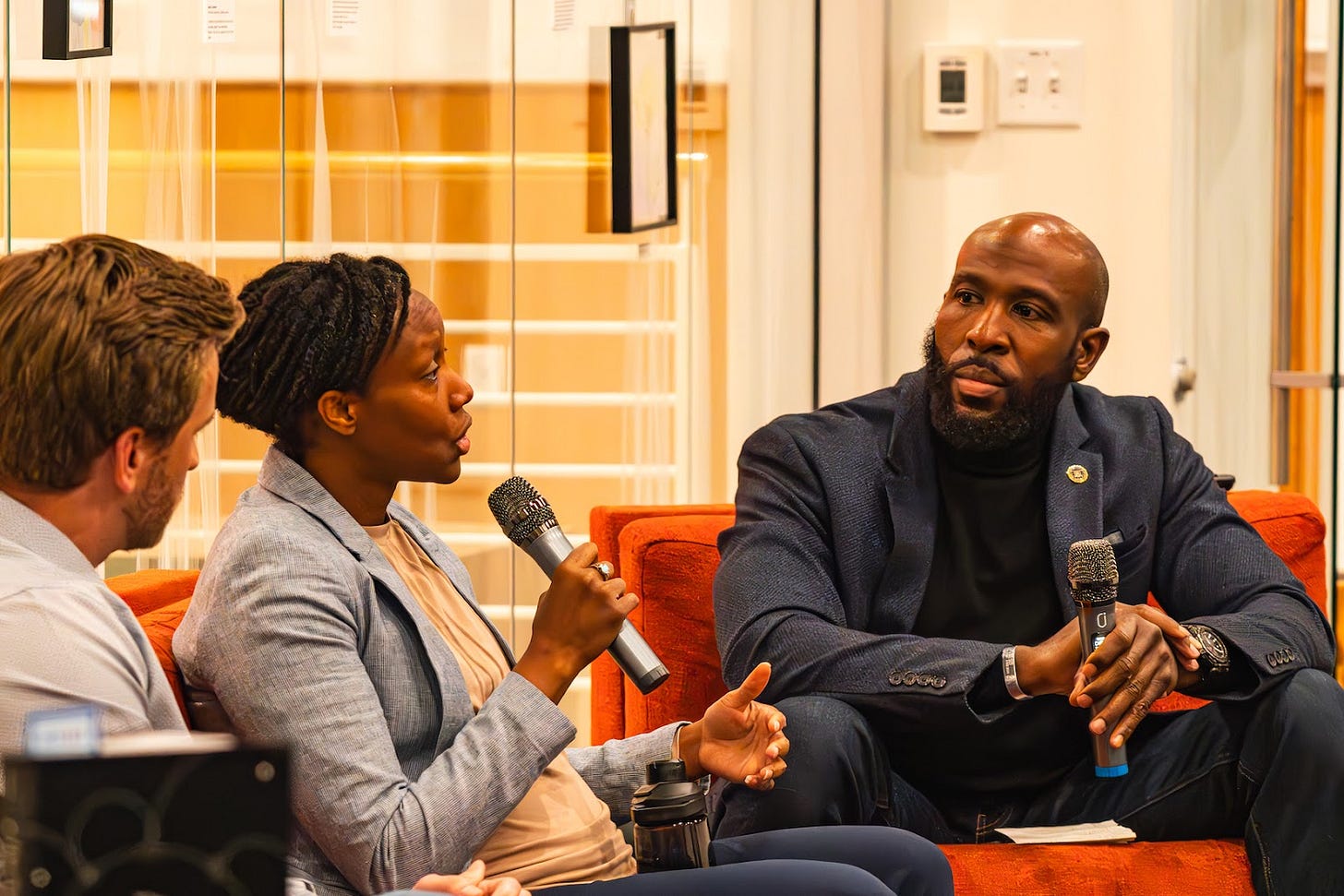Defense Innovation Experts Shared Lean Startup Methodology Strategies for Transforming Defense through Innovation for National Security at Stanford University Hacking for Defense® Panel Discussion
Panelists included Steve Blank, Jeff Decker, Lt Col Jamie Porchia, Andrew Powell + Moderator Jeff Fields and Emcee Maria Tranquilli; Opening Remarks by Joe Felter and a book signing by Jeff Decker
“No one comes up with better and real world problems to solve than the government—and the government has really hard problems to solve. We are at ground-zero for geopolitical issues, in terms of the level of malicious and hostile policies by other governments. So let’s solve them, scale them and build them. When you think about the incredible ecosystem of entrepreneurs in the United States and you think of companies like Anduril and Capella Space—to compete in the space they do now, how do you find counter measures you haven’t even discovered yet? You take the incredible brain power that exists on campuses and put them to work. That’s Hacking for Defense.” — Jeff Fields, assistant special agent in charge of the FBI’s Counterintelligence, San Francisco.
A recent panel discussion at Stanford University showcased how Lean Startup Methodologies, through the Hacking for Defense® program at colleges and universities across the country, are shaping the future of national security problem-solving. The discussion explored insights from The Hacking for Defense Manual showcasing the huge impact academia, government and industry can have on solving national security problems when they work together.
Participants were leading experts in the defense and security industries:
Steve Blank, co-founder of the Hacking for Defense® (H4D) program, adjunct professor at Stanford, and co-founder of the Gordian Knot Center for National Security Innovation.
Jeff Decker, PhD, program director of the Hacking for Defense program at Stanford University, director of education with the Common Mission Project, and author of the new Hacking for Defense Manual.
Jamie Porchia, Lt Col, USAF, assistant professor with the Department of Defense Management (DDM) at the Naval Postgraduate School (NPS).
Andrew Powell, co-founder and CEO, Learn to Win. Andrew started Learn to Win (L2W) after taking the Stanford Hacking for Defense course.
Joe Felter, PhD, - co-founder of the Hacking for Defense program, co-founder and center director of the Gordian Knot Center for National Security Innovation and adjunct professor.
Jeff Fields, assistant special agent in charge of the FBI’s Counterintelligence branch in San Francisco who has close to 20 years of experience conducting global operations in support of U.S. national security.
Maria Tranquilli, executive director for the Common Mission Project, the nonprofit organization responsible for supporting Hacking for Defense.

Joe Felter, PhD, opened with remarks on the inception of H4D and its unique Lean Startup methodology, which applies agile, entrepreneurial principles to solve national security problems. “Our national security challenges demand the same fast, iterative approach that’s transformed industries across the private sector,” said Felter.

Steve Blank emphasized the impact of collaboration across sectors. “Innovation in defense isn’t a one-player game,” he said. “With H4D, we’re proving that when academia, government, and industry work together, they can solve problems that previously seemed impossible. H4D teaches students to tackle these issues at startup speed, bridging the gap between the pace of Silicon Valley and the needs of the Department of Defense.”

Jeff Decker introduced The Hacking for Defense Manual, and how it is an important tool students and aspiring defense entrepreneurs can use to solve mission-driven problems. The H4D Manual is designed as a practical, hands-on guide and illustrates the program’s approach to rapid problem-solving in government. “This manual isn’t just for H4D students,” Decker noted. “The tools and concepts are for anyone looking to apply entrepreneurial thinking to creating products and services that solve hard problems in national security and beyond.”


Maria Tranquilli and Decker also reflected on the worldwide expansion of the H4D class. “The challenges our allies face mirror our own,” Decker said. “By sharing H4D, we’re building a global network of innovators who are committed to strengthening our collective defense.” Tranquilli also shared that from the Common Mission Project’s perspective, “H4D is proving that the future of defense innovation lies not only within the Pentagon walls but also in classrooms around the world.”
Lt. Col. Jamie Porchia from the Naval Postgraduate School (NPS) shared how H4D equips students with a mission-focused mindset that’s critical in today’s complex security landscape. “What makes H4D unique is its ability to instill a sense of purpose,” said Porchia. “Military students at NPS who take the H4D class leave with more than skills—they leave with a new set of tools to solve the problems they face everyday, which is exactly what our national security needs.”

FBI Special Agent Jeff Fields noted the H4D program’s broader influence on defense and beyond. “H4D had a vision for education to create a model for innovation in defense, and as an H4D problem sponsor, I’ve seen first-hand the benefits of having students come in and think outside of the box to come up with solutions we didn’t even know were possible.”
To watch the full panel discussion, click below.
The event was hosted by the Hacking for Defense (H4D) program, the Gordian Knot Center for National Security Innovation, Stanford Energy, and the Common Mission Project. It spotlighted how the H4D program, taught at more than 70 universities around the globe, is reshaping the future of defense tech and national security innovation by teaching students how to apply the Lean Methodology to mission-driven problems.
To learn more about the Hacking for Defense program taught at colleges and universities around the world, visit H4D.us. To learn more about The Hacking for Defense® Manual by Jeff Decker, PhD, visit Amazon.
The Hacking for Defense program has created 70 startups that have generated 660 jobs and raised more than $350 million. To learn more about the H4D course at Stanford University, visit h4d.stanford.edu; to learn more about H4D around the world, visit h4d.us. Subscribe to the H4D Stanford Substack at stanfordh4d.substack.com.



